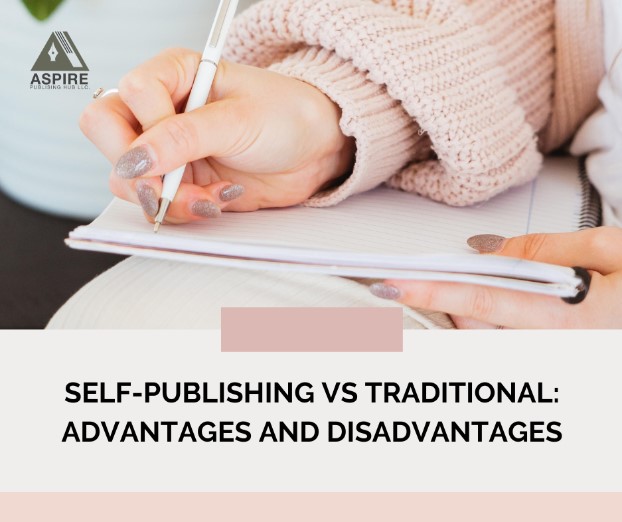Many authors, especially new ones, struggle with knowing where to begin and what to accomplish. A few things that new book authors should be aware of when starting are even being denied by some.
Conduct research
If you’re writing nonfiction, you may conduct historical, cultural, scientific, or other academic studies. As part of this research, you might read other works, do fieldwork, talk to experts in person, and do other things.
Suppose your story contains actual events, individuals, places, or other details. In that case, you may need to conduct some traditional research if you’re writing fiction. You may also wish to conduct internal research as you create your story. It can involve creating character sketches, taking notes for worldbuilding, and other activities.
No matter what you’re writing, reading other pieces in the same style and genre will be incredibly beneficial. Read other science fiction works or books with nonlinear structures if you’re writing a science fiction book with one.
Decide what the subject of your book is
We’re not talking about the topic or overarching storyline here; instead, we’re talking about the broader picture: themes, character arcs, and the larger message you want to convey.
It can come from big ideas in fiction, like writing a book about family love or showing how climate change affects people. You should think about what makes your book unique if it is nonfiction.
Plan
You should now begin to arrange your ideas. Others are diligent planners, while some fiction authors prefer to forgo this process or may return to it after completing the first draft. It is a crucial step that will make it much easier to finish your first draft if you are writing nonfiction or for a paying audience.
Create an initial draft
Some folks take an hour every day before work to write, swearing by it. Some experiment when they can. Only one method will work for you; there is no right way to do things.
Even if you only write ten pages weekly, it would only take forty weekends, or less than a year, to draft the hundreds of pages that make up a finished book.
Read critically and look for improvements
Your manuscript should be read the first time thoroughly. Don’t spend too much time correcting individual sentences; mark any passages that read awkwardly. If you spend too much time figuring out what’s wrong, your book’s pace will suffer as you read.
Most of the time, this is when writers who didn’t outline their first draft go back to it, figure out how it’s put together, and make plans to change it in the second draft.
Produce a second draft
It isn’t editing. At this point, you’re probably adding whole new chapters, getting rid of characters who didn’t add anything. Doing more research to fill in a hole that wasn’t clear when you were first getting ready
Self-correct
At this point, you should start examining more sentences, paragraphs, and word-level modifications. Any little detail that may affect your story needs to be taken care of immediately as to not create a bigger challenge for yourself.
Focus on the following:
The obvious ones are grammar, spelling, and punctuation. When you’ve been gazing at the exact words for so long, Grammarly can be helpful at this point. Grammarly teaches you how to fix common mistakes in grammar, punctuation, spelling, and other areas.
Flow
Perhaps you’ve previously addressed more significant pace difficulties when revising. It would help if you now consider language flow.
Terminology
Using proper terms for your readers and characters, as well as factually true words and industry terminology that they may not comprehend For instance, let’s say you’re an expert in marketing and you’re writing a book for people who are starting their first small business.
Tone
What type of tone do you use in your writing? If you’re writing nonfiction, examine whether you come across as knowledgeable and confident. It might be less applicable to fiction writing. Do you have sympathy?
Give some beta readers your manuscript
It may be done by specific authors earlier in the writing process. It’s alright. When choosing beta readers and positioning yourself for success,
Select beta readers who correspond to your book’s target market or are good at putting themselves in the shoes of others. Give your marketing book to another seasoned marketer to read.
Make their task easier to manage. Find a way to get them a printed copy if they request one. Export your manuscript as an ebook and deliver it to them if they wish to read it on their tablet.
Consider and absorb criticism
Receiving criticism, even if it’s essential, may be difficult. You have to listen. Don’t try to justify yourself. Instead, concentrate on raising questions to help you comprehend what the reading is saying.
Make sure you comprehend, especially if there is feedback about whether anything is liked or disliked. You may not always be expected to warm up to a character or scene. When a reader expresses dissatisfaction with a character or scenario designed to make them uncomfortable to advance the story or build the mood, this can be called “constructive feedback.”
One general guideline is that you might not agree with all of the input you receive. It’s alright. Check whether another reader provides the same feedback when this occurs. If multiple people give you the same note, there may be some truth to what they are saying. If not, it can simply be a question of taste.
Think of a title.
You might already have a fantastic one. However, if not, you probably need one right away because a title is one of the most critical parts of a book. It requires a lot of consideration because your title will decide whether readers want to read your book or not.
Prepare your manuscript for publication or submission.
Your ultimate goal will heavily influence this step’s appearance. Look into standard formatting requirements before sending an article to agencies or editors.
If self-publishing, you’ll need to format your manuscript as an ebook and get a little more technical. When creating the page layout for an ebook, you might work closely with a designer. Additionally, you must consider cover design for both ebooks and self-publishing. Give the manuscript one last proofread to eliminate those little mistakes.
Every little detail influences a book and how it is written, so some features of a book must be considered.
It can be overwhelming at first to be an author and write your own story, but deciding to write your book is already a huge step in being a successful author. Everyone wants to be an excellent writer. However, not everyone has the guts to do it. So, starting writing is a brave move that not many will make.



